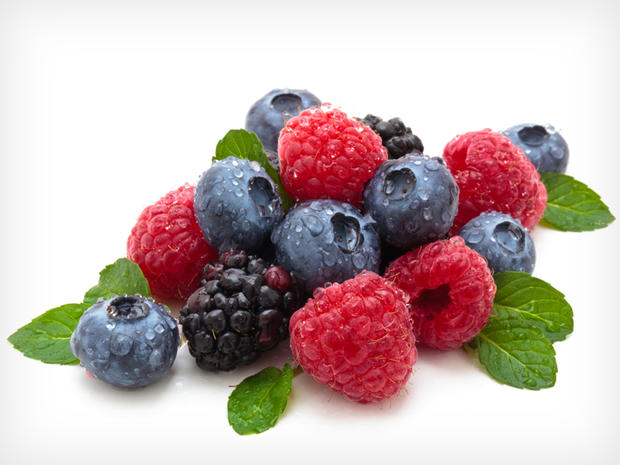Study on benefits of organic foods is misleading, consumer group argues
(CBS News) New research by Stanford University reports that organic foods may not be any healthier for you than a non-organic option.
Researchers looked at 237 studies which compared the nutrient content; level of the bacterial, fungal or pesticide contamination or difference in diets when people opted to go organic versus non-organic. They concluded that there was little significant difference in health benefits between organic and conventional foods. While conventional food had created more health risks, most seemed to be within the safety limits or the links to associated problems were inconclusive. The information was published in the Annals of Internal Medicine on Sept. 4.
Organic food hardly healthier, study suggests
But, it's the increased risk that has the Environmental Working Group (EWG), an environmental organization that focuses on public health and the environment, worried. Sonya Lunder, a senior analyst with EWG said to HealthPop that the organization disagreed with the way that the study was put together, and that people should pay closer attention to the information.
"We think the difference is much more important than they prove," she said.
The Stanford study did reveal that organic produce is 30 percent less likely to be contaminated with pesticides than conventional fruits and vegetables but also pointed out that organic foods aren't necessarily 100 percent free of pesticides. But Lunder believes that what people should be focusing on is the two studies on children consuming organic foods that were included in the research. They revealed that there were lower levels of pesticide residues in the urine of children on organic diets, though both organic and conventional diet levels of urinary pesticides were in the allowable safety limits.
"These [studies] are zeroing in on types of pesticides most toxic to people. These are insecticides that target the nervous system, and they have been linked in studies of American kids with lower birth weight, ADHD and hyperactivity," Lunder said.
Another study that the researchers considered showed that conventionally-raised meat treated heavily with antibiotics is much more likely to carry drug-resistant bacteria, Lunder pointed out.
However, EWG does recognize that budgetary costs may make it hard to eat organic all the time. In response, the group has released EWG's 2012 Shopper's Guide to Pesticides in Produce to highlight the foods that they've found consistently have high levels of pesticides. Apples, celery, bell pepper and strawberries are part of their "Dirty Dozen," and the organization recommends that people choose organic when it comes to these products. However, other items which they nicknamed the "Clean 15" like onions, sweet corn and avocados have lower levels of pesticides on average, so consumers can feel more comfortable choosing the conventional option.
"We know that no one is eating 100 percent organic in this day and age, so if we can hone in on the foods that kids are eating, it can make a big difference," Lunder stated.

